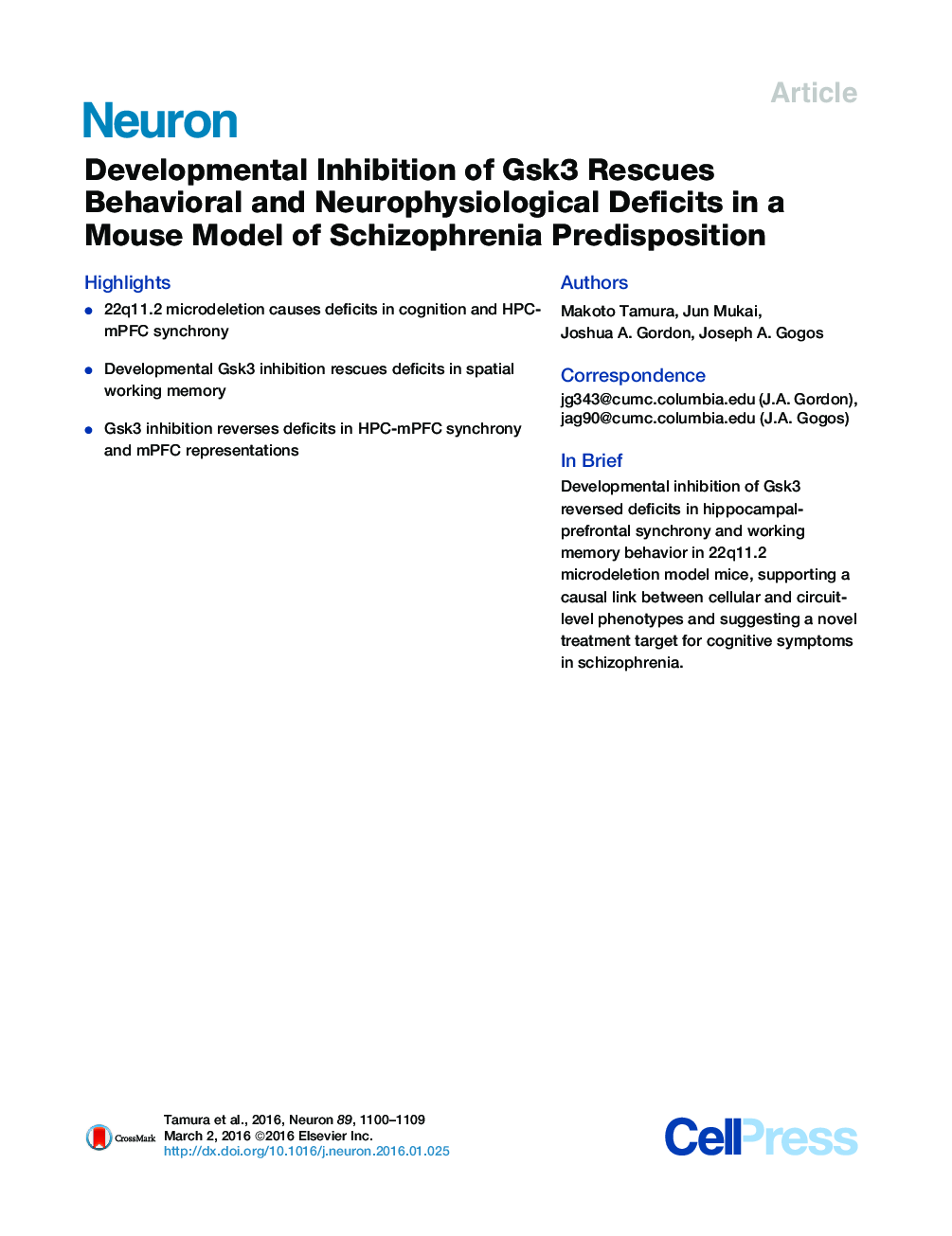| Article ID | Journal | Published Year | Pages | File Type |
|---|---|---|---|---|
| 4320806 | Neuron | 2016 | 10 Pages |
•22q11.2 microdeletion causes deficits in cognition and HPC-mPFC synchrony•Developmental Gsk3 inhibition rescues deficits in spatial working memory•Gsk3 inhibition reverses deficits in HPC-mPFC synchrony and mPFC representations
SummaryWhile the genetic basis of schizophrenia is increasingly well characterized, novel treatments will require establishing mechanistic relationships between specific risk genes and core phenotypes. Rare, highly penetrant risk genes such as the 22q11.2 microdeletion are promising in this regard. Df(16)A+/− mice, which carry a homologous microdeletion, have deficits in hippocampal-prefrontal connectivity that correlate with deficits in spatial working memory. These mice also have deficits in axonal development that are accompanied by dysregulated Gsk3β signaling and can be rescued by Gsk3 antagonists. Here we show that developmental inhibition of Gsk3 rescues deficits in hippocampal-prefrontal connectivity, task-related neural activity, and spatial working memory behavior in Df(16)A+/− mice. Taken together, these results provide mechanistic insight into how the microdeletion results in cognitive deficits, and they suggest possible targets for novel therapies.
